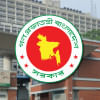A recommendation that needs careful appraisal

The recommendation by a government committee to raise the entry age limit for public service jobs to 35 for men and 37 for women marks a major step in addressing a long-standing demand of some jobseekers. If implemented, this could provide relief to aspirants whose educational or career paths have been delayed due to various factors, such as the pandemic, economic downturn, political harassment, backlogs in public-sector recruitment, etc. However, while the proposal serves to address immediate concerns, it may open up new challenges that the government should carefully navigate to ensure that any decision aligns with our broader economic goals.
In Bangladesh, around 90 percent of employment is in the informal sector, while public and formal private sector jobs cover the remaining 10 percent. The growing fascination with public-sector jobs has as much to do with the struggling and largely stagnant private job market as with the security and benefits that come with public jobs, especially since the 2015 pay scale increase. However, the public sector, representing less than 5 percent of total employment, cannot accommodate the large number of jobseekers, leading to frequent demands for removing quota (which has been met) and raising the entry age limit. The last time the age ceiling was raised—from 27 years to 30—was in 1991.
The growing fascination with public-sector jobs has as much to do with the struggling and largely stagnant private job market as with the security and benefits that come with public jobs, especially since the 2015 pay scale increase. However, the public sector, representing less than 5 percent of total employment, cannot accommodate the large number of jobseekers, leading to frequent demands for removing quota (which has been met) and raising the entry age limit.
Against this backdrop, the recommendation—which may be placed before the Advisory Council for the final nod—has been welcomed by some so long as it is approached as a "temporary" solution. Their guarded reaction can be attributed to several concerns. First, while it is understandable why a section of jobseekers would want the entry age to be raised, it is unfortunate that such a policy shift should occur under pressure rather than guided by research. Another concern is the potential swelling of the applicant pool, making it even harder to manage the recruitment process efficiently. There is also a concern that the accommodation of older candidates could further exacerbate the youth unemployment problem and discourage entrepreneurial pursuits for extended periods. The likelihood that raising the entry age may lead to a corresponding increase in the retirement age—currently 59—has also raised some concerns.
Given the circumstances, some experts have suggested a time-bound approach—such as raising the age limit for a few rounds of the Bangladesh Civil Service (BCS) exams—that would allow the government to evaluate the impact of the change without committing to permanent reforms. This makes sense from a practical point of view, as updating or streamlining all decisions related to recruitment, retirement and pension eligibility requires proper planning and preparation. Those arguing in favour of greater flexibility in the job entry limit, or removing it altogether, in line with the practices of some countries, also have a point. This is a direction that could help an administration aspiring to be meritocratic.
That said, we must recognise that the real problem for us is not the age limit or lack thereof, but the lack of jobs in general. High unemployment and insecurity in the private sector are driving more and more candidates towards government jobs, creating a very unhealthy and unsustainable environment. So, we urge the government to approach this issue as part of wider economic and administrative reforms that can fulfil the nation's aspirations for a more dynamic and inclusive job market as well as an efficient, people-centred civil service.


 For all latest news, follow The Daily Star's Google News channel.
For all latest news, follow The Daily Star's Google News channel. 









Comments